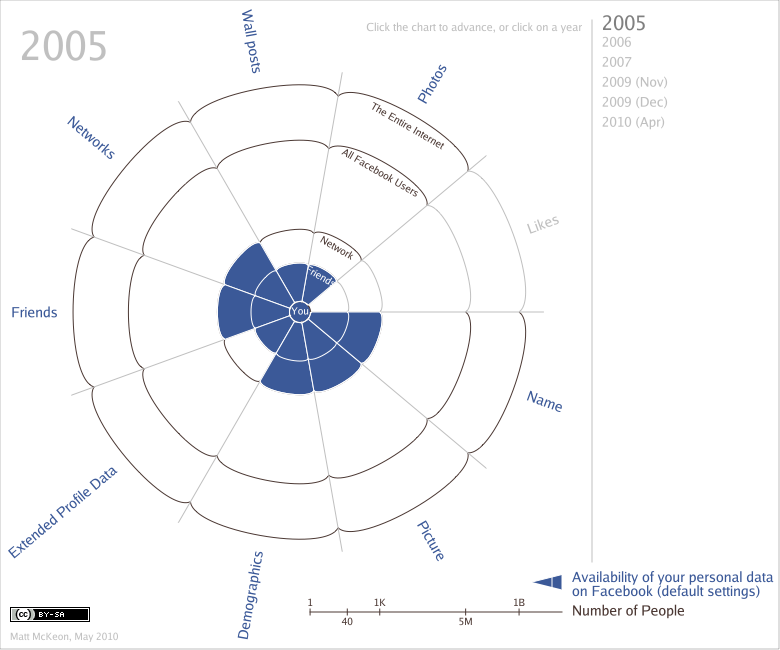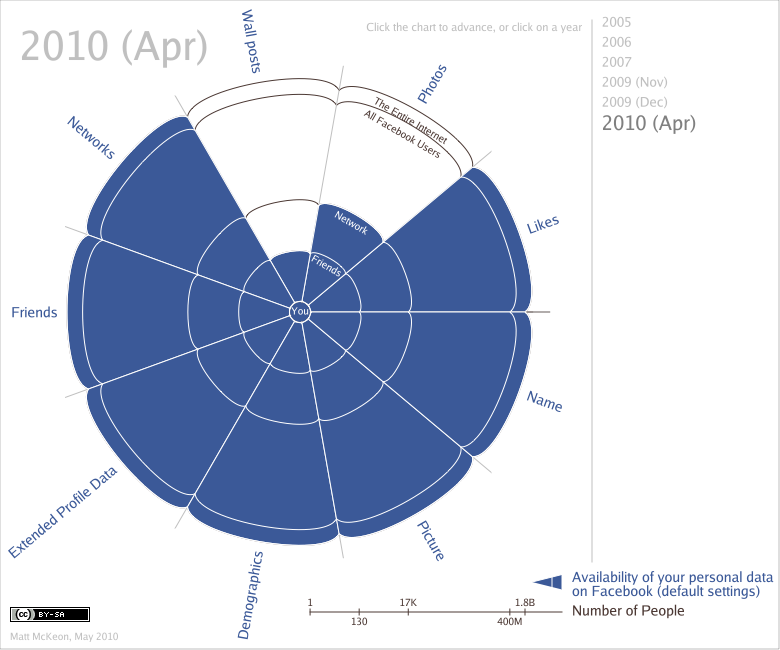John Scalzi has been online for a long time. He even “handrolled his own html code and then uploaded it using UNIX commands because he was excited to have his own Web site, and back in 1993 that’s how you did it.” He’s not excited about Facebook. Not at all:
A friend of mine noted recently that I seemed a little antagonistic about Facebook recently — mostly on my Facebook account, which is some irony for you — and wanted to know what I had against it. The answer is simple enough: Facebook is what happens to the Web when you hit it with the stupid stick. It’s a dumbed-down version of the functionality the Web already had, just not all in one place at one time.
Facebook has made substandard versions of everything on the Web, bundled it together and somehow found itself being lauded for it, as if AOL, Friendster and MySpace had never managed the same slightly embarrassing trick. Facebook had the advantage of not being saddled with AOL’s last-gen baggage, Friendster’s too-early-for-its-moment-ness, or MySpace’s aggressive ugliness, and it had the largely accidental advantage of being upmarket first — it was originally limited to college students and gaining some cachet therein — before it let in the rabble. But the idea that it’s doing something better, new or innovative is largely PR and faffery. Zuckerberg is in fact not a genius; he’s an ambitious nerd who was in the right place at the right time, and was apparently willing to be a ruthless dick when he had to be. Now he has billions because of it. Good for him. It doesn’t make me like his monstrosity any better.
[. . .]
I look at Facebook and what I mostly see are a bunch of seemingly arbitrary and annoying functionality choices. A mail system that doesn’t have a Bcc function doesn’t belong in the 21st Century. Facebook shouldn’t be telling me how many “friends” I should have, especially when there’s clearly no technological impetus for it. Its grasping attempts to get its hooks into every single thing I do feels like being groped by an overly obnoxious salesman. Its general ethos that I need to get over the concept of privacy makes me want to shove a camera lens up Zuckerberg’s left nostril 24 hours a day and ask him if he’d like for his company to rethink that position. Basically there’s very little Facebook does, either as a technological platform or as a company, that doesn’t remind me that “banal mediocrity” is apparently the highest accolade one can aspire to at that particular organization.
I have a Facebook account, but only really check it every few days. Twitter, on the other hand I’ve found to be an excellent tool for a blogger: lots and lots of interesting stuff has come to my attention first through a Twitter update from journalists, bloggers, celebrities, and just ordinary folks. And it doesn’t try to worm its way into everything I do.
Some folks felt John was being too harsh on Facebook users, rather than the site itself, so he posted an update later that day:
* In comments here and elsewhere there was interpretation of me saying that Facebook wasn’t for someone like me, but it was for normal people as a) a way to signal that I am awesome and smart and also awesome, and b) normal people are stupid and suck, and that’s why they use Facebook. Yeah, no. It’s not for me because the functionality doesn’t map well for what I want to do or have for my online experience, and “normal” in this case doesn’t mean “stupid people who suck,” it means “people who don’t want to make the time/energy commitment to run their own site.”
It’s always a problem with written work . . . some people will misunderstand or misinterpret what you’re saying — deliberately or otherwise — and it’s difficult to make something so clear that it can’t be twisted. Did I say difficult? I should have said impossible.







